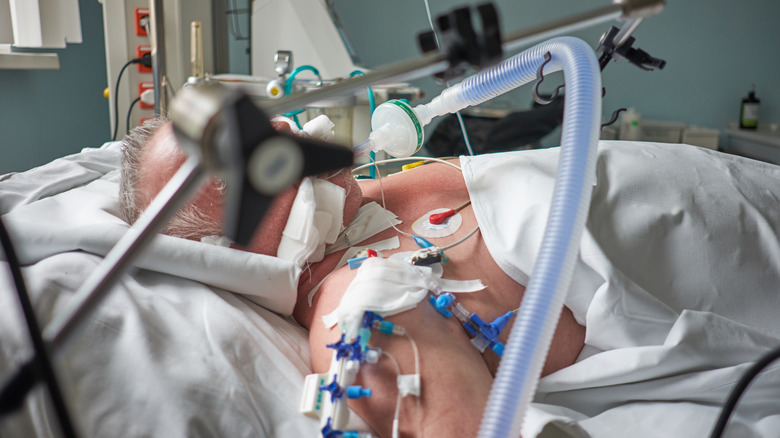Microchip Brain Implant Allows Paralyzed Man To Speak Again
A man with amyotrophic lateral sclerosis (ALS), which causes loss of muscle control leading to — among many other things — the inability to communicate, has been able to "speak" again due to a neurological implant, according to a report from Science today. Some people afflicted with ALS (also referred to as Lou Gehrig's disease) have been able to communicate non-verbally via eye movements, such as selecting Yes or No answers or spelling out works with an eye-tracking camera. However, as conditions worsen, even slight eye movement can become impossible and in the process render those methods useless.
As Science points out, while a brain implant that helps "locked in" patients (those who no longer have the necessary muscle control or have been put on a ventilator) retain some level of expression can be helpful both for research and for the patient's overall wellbeing, there are many ethical points to consider. For example, if a patient consents to the surgery but then loses their ability to communicate, they can't let anyone know if their decision changes. Another concern is that, due to the implant's limitations, complex discussions (such as end-of-life care) are more or less impossible.
The implant
Two square electrode arrays were surgically implanted in the unnamed man's brain, in the area that controls movement. Once installed, researchers began testing for the most effective brain signals that could be used for interpretation. When various attempts to signal movement proved too inconsistent, they moved on to a more successful system where the patient would try to use the implant to match the pitch of a tone being played.
From there, the system was expanded so that the patient could hold the tone at different levels to indicate a "Yes" or "No" response, then eventually individual letters. While this did allow him to form full sentences, it was not a fast process. In fact, it took roughly one minute per character — or about 30 minutes or more per sentence.
The effectiveness of the implant has also been diminishing over time, though the reasons for that still aren't entirely clear. Researchers believe scar tissue that has been forming around the implant has been a factor, but suggest it could also be due to the progression of the disease and the toll being taken on the patient's brain. Unfortunately the technology is still too experimental, and the ethical implications are still under scrutiny, so implants like this are unlikely to become an option for all ALS patients anytime soon.

